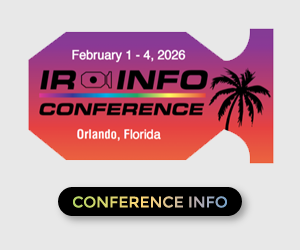You’ve Got To Coach Up To Achieve Precision Maintenance
Drew Troyer, CRE, CMRP, EditorThe RAM Review www.theramreview.com Date of publication: Mar 6, 2021 and available online at: https://theramreview.com/coach-up-to-achieve-precision-maintenance/ |

Much attention is paid to the foundational elements that are necessary to ensure equipment and process reliability in plants. Still, in the end, reliability really comes down to people employing tools and materials to effectively execute maintenance plans. That is the essence of precision maintenance. Reliability-Centered Maintenance (RCM) processes are great for optimizing our maintenance plans. Maintenance-work-management processes help us prioritize work and plan for success. But it’s in the actual execution of the work where the rubber meets the road.
A strategy for coaching and mentoring your mechanical and electrical tradespeople and their supervisors will help achieve excellence in the precision execution of maintenance work on the plant floor. The process really isn’t difficult. The coaching process requires pre-work instruction and sessions with a crew to foresee and preemptively avoid issues that prevent precision work, as well as optimize post-work sessions with the same crew to identify what went right and what went wrong. Over time, the organization learns the common and highly repeatable obstacles to precision work, and managers identify where they need to run out in front to clear such hurdles.
I’ve found that a great approach to coaching and mentoring precision maintenance is to do it one job and one crew at a time. In a typical manufacturing or process plant, a job is generated as a by-product of a time-based schedule or a notification that’s approved by a gatekeeper. Whether the job is schedule-based or notification-based, the planner determines how the job should be executed. He or she defines the required parts and materials, required tools (particularly special tools), and the work instructions that are necessary to complete the job.
Let’s start with parts and materials. A preemptive review of a job plan to determine if all of the parts are in house and available is a basic requirement. The right parts must be in the right place at the right time to precisely execute maintenance work. Do we have the necessary parts and materials on-hand to complete the job? Are these parts and materials kitted and staged for easy access? Review the materials plan with the crew to ensure that the job-kit staging is sufficient to support precision execution.
Next, move to the tools. Are tools required to complete the job adequately specified in the work plan? Does the job require any special tools? If the special tools must be hired in, has that been arranged? If special hire tools require a contractor, has that been arranged? If the special tool is an in-house tool, has it been assigned to more than one conflicting job? Is the tool’s calibration up to date? Are the tradespeople that must use the special tool properly trained and qualified on its use?
Finally, evaluate the work instructions for the job with the crew. Most work plans look like a wish-list instead of how-to instructions. Are fit, tolerance, quality, and quantity details included in the work instructions? Are the instructions clear and understandable? Is the team assigned to the job adequately trained and experienced to execute the work based upon the available instructions?
These coaching and mentoring sessions needn’t be long or protracted. You can usually complete them in 10 or 15 minutes. However, they’re extremely valuable in identifying pitfalls that can compromise your goal of executing maintenance with a high degree of precision. Be sure, though, to close the loop with the crew at the close of the loop and identify opportunities for improvement.
About the Author
Drew Troyer has over 30 years of experience in the RAM arena. Currently a Principal with T.A. Cook Consultants, he was a Co-founder and former CEO of Noria Corporation. A trusted advisor to a global blue chip client base, this industry veteran has authored or co-authored more than 250 books, chapters, course books, articles, and technical papers and is popular keynote and technical speaker at conferences around the world. Drew is a Certified Reliability Engineer (CRE), Certified Maintenance & Reliability Professional (CMRP), holds B.S. and M.B.A. degrees, and is Master’s degree candidate in Environmental Sustainability at Harvard University. Contact him directly at 512-800-6031 or
Advertisement

